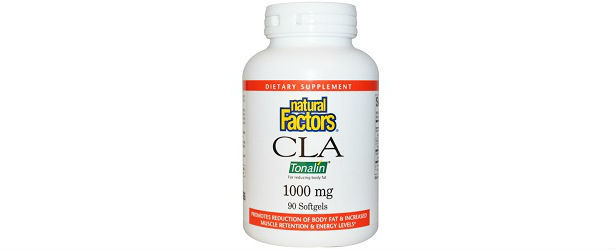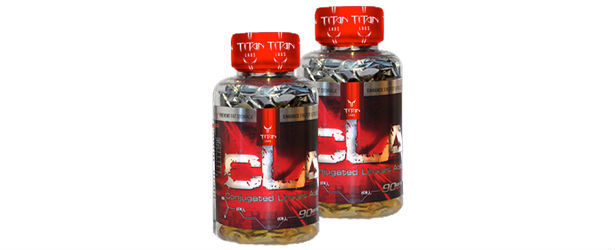
What is CLA?
Conjugated linoleic acid (CLA) is a naturally occurring trans fatty acid made from omega-6 essential fatty acids in the guts of pastured ruminants such as cows, goats, and sheep. If you’re hearing warning bells over the phrase “trans fatty acid,” it’s because trans fatty acids have recently received a lot of negative attention from health experts. However, the general consensus is that man-made trans fatty acids may not be healthy for humans. CLA, however, is a naturally occurring trans fatty acid, and is exempted from the labeling requirement because it is not considered to be harmful.
 Naturally present in dairy and beef, CLA consists of subcomponents called isomers. Different isomers have been isolated in animal research as having various health benefits. For example, the isomer most prevalent in dairy products has potential anti-carcinogenic benefits, while the one most prevalent in pastured beef is potentially effective in the regulation of body fat. Some research suggests other CLA isomers could have other health benefits such as protecting the heart, preventing thickening of arteries, preventing cancer, particularly breast cancer, and helping to regulate the immune system. CLA is not an essential fatty acid, so technically we don’t have to have CLA in our diets in order to be healthy. However, CLA has many potential health benefits which make it a welcome addition to a diet designed to nourish and protect. CLA is unique among foods with possible anti-cancer activity because it is derived from animal products, and seems to be effective in amounts humans typically get from eating food.
Naturally present in dairy and beef, CLA consists of subcomponents called isomers. Different isomers have been isolated in animal research as having various health benefits. For example, the isomer most prevalent in dairy products has potential anti-carcinogenic benefits, while the one most prevalent in pastured beef is potentially effective in the regulation of body fat. Some research suggests other CLA isomers could have other health benefits such as protecting the heart, preventing thickening of arteries, preventing cancer, particularly breast cancer, and helping to regulate the immune system. CLA is not an essential fatty acid, so technically we don’t have to have CLA in our diets in order to be healthy. However, CLA has many potential health benefits which make it a welcome addition to a diet designed to nourish and protect. CLA is unique among foods with possible anti-cancer activity because it is derived from animal products, and seems to be effective in amounts humans typically get from eating food.
Unlike other fatty acids, the human body cannot make CLA. We must rely on animal and dairy products for our intake of this nutrient. Changes in food processing, farming and the modern diet have contributed to an 80% reduction in the amount of CLA we take in. Because of the reduced consumption of red meat and dairy products, many of us do not have helpful quantities of CLA in our diets.
CLA is a newly discovered good fat that may be a potent cancer fighter. In animal studies, very small amounts of CLA have blocked all three stages of cancer: 1) initiation, 2) promotion, and 3) metastasis. Most anti-cancer agents block only one of these stages. What’s more, CLA has slowed the growth of an unusually wide variety of tumors, including cancers of the skin, breast, prostate, and colon.
 Individuals get asthma when they produce much higher levels of leukotrienes, which are fatty molecules of the immune system and at least 1000 times more potent than histamine at causing bronchial constriction. These highly inflammatory leukotrienes are produced when an enzyme known as 5-lipoxygenase (5-lipox) acts on a particular fat called arachidonic acid (AA).
Individuals get asthma when they produce much higher levels of leukotrienes, which are fatty molecules of the immune system and at least 1000 times more potent than histamine at causing bronchial constriction. These highly inflammatory leukotrienes are produced when an enzyme known as 5-lipoxygenase (5-lipox) acts on a particular fat called arachidonic acid (AA).
CLA helps fight 5-lipox and AA inflammation without harming your arteries. CLA does this by converting inside your body to both DHA and EPA, both of which have powerful anti-inflammatory properties.
- Cardiovascular disease
- High blood pressure
- High cholesterol and triglycerides
- Osteoporosis
- Insulin resistance
- CLA’s actions actually mimic the effect of synthetic diabetic drugs. Testing on mice with type 2 diabetes has shown CLA to improve insulin action and reduce circulating glucose. Even better, the early results from human trials are just as positive when consuming CLA for longer than eight weeks.
- Inflammation
- Immune system invaders
- Food-induced allergic reactions
TOP 5
CLAProducts |
|||||
| CLA Premium | Nature's Bounty CLA | Natrol Tonalin CLA | Potent Organics CLA | AST Sports Science CLA-1000 | |
|---|---|---|---|---|---|
| 1 | 2 | 3 | 4 | 5 | |
| Price (1 bottle) Price (6 bottles)best value |
$48.00 $138.00 |
$21.99 $131.94 |
$19.29 $115.74 |
$24.73 $148.38 |
$23.99 $143.94 |
| Overall Rating | 99.50% | 83.5% | 79.2% | 69.0% | 62.1% |
| Effectiveness |





|





|





|





|





|
| Speed of Results | Extremely Fast | Good | Average | Slow | Slow |
| Quality of Ingredients | Premium | Good | Good | Average | Unknown |
| Customer Satisfaction Evaluation | 99.40% | 81.5% | 76.7% | 66.9% | 60.0% |
| Safety Evaluation | Safe for Use | Safe for Use | Safe for Use | Safe for Use | Safe for Use |
| Customer Service Rating |





|





|





|





|





|
| Reorder Rate | Highest | Good | Average | Average | Average |
| Return Policy | Risk Free | NO | Risk Free | Risk Free | NO |
| Success Rate | 99.40% | 80.5% | 74.5% | 66.0% | 59.5% |

 Subscribe Now
Subscribe Now











